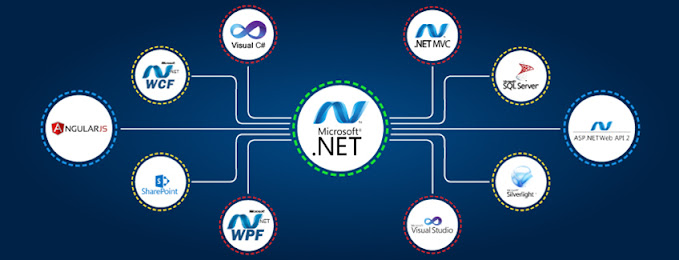AI & DevOps: A Perfect Duo for Scalable Tech Solutions?
In today's fast-paced digital landscape, AI & DevOps have emerged as a formidable combination, enabling businesses to create scalable, efficient, and intelligent solutions. Organizations leveraging AI/ML development services alongside cloud DevOps services can optimize their workflows, automate processes, and enhance overall operational efficiency. The synergy between AI in DevOps and DevOps for SaaS solutions drives innovation, reduces time-to-market, and strengthens system resilience. Let's explore how this powerful duo is transforming technology infrastructure.
The Intersection of AI and DevOps
The fusion of AI and DevOps is redefining software development and deployment. Traditionally, DevOps focuses on continuous integration and continuous deployment (CI/CD), but integrating AI/ML development services into the pipeline enhances automation, decision-making, and predictive capabilities.
With DevOps implementation, businesses can establish a culture of collaboration between development and operations teams. However, adding AI brings a new dimension to DevOps practices by optimizing performance through intelligent monitoring, automated testing, and enhanced incident response mechanisms.
Key Benefits of AI in DevOps
1. Automated Problem Detection & Resolution
AI-driven cloud DevOps services leverage machine learning to detect and rectify errors before they escalate into major issues. Through intelligent algorithms, businesses can automate failure detection, reducing downtime and ensuring a seamless customer experience.
2. Predictive Analytics for Performance Optimization
By harnessing AI in DevOps, teams can analyze historical data and identify patterns that predict system failures, performance bottlenecks, and security threats. Predictive analytics enables proactive maintenance, allowing organizations to optimize their infrastructure before issues arise.
3. Intelligent CI/CD Pipelines
AI enhances DevOps implementation by introducing smart automation into CI/CD pipelines. Through self-learning models, deployment strategies are continuously refined, ensuring efficient code releases with minimal human intervention.
4. Enhanced Security & Compliance
AI-powered DevOps tools enable real-time threat detection and vulnerability scanning. DevOps for SaaS applications especially benefit from AI-enhanced security measures, ensuring compliance with industry regulations while safeguarding customer data.
5. Smart Infrastructure Scaling
With cloud DevOps services, AI helps businesses scale resources dynamically. By analyzing application usage and demand patterns, AI-driven systems adjust server capacities, optimize cloud costs, and ensure efficient load balancing.
How AI is Revolutionizing DevOps Implementation
AI-Driven Infrastructure as Code (IaC)
Infrastructure as Code (IaC) is a fundamental aspect of DevOps implementation, allowing teams to define infrastructure through scripts. AI enhances IaC by identifying optimization opportunities, predicting configuration drift, and automating provisioning tasks.
Self-Healing Systems with AI
AI-powered self-healing mechanisms ensure that when an application encounters issues, automated recovery processes restore services without manual intervention. This significantly reduces downtime and enhances reliability in DevOps for SaaS applications.
Chatbots and Virtual Assistants for DevOps
AI-powered chatbots provide real-time support to DevOps teams by answering queries, automating troubleshooting, and assisting in workflow automation. These AI-driven tools enhance collaboration and streamline processes.
Use Cases of AI & DevOps Across Industries
1. E-Commerce & Retail
AI-powered recommendation engines combined with DevOps implementation ensure seamless online shopping experiences.
Predictive analytics in cloud DevOps services helps manage high-traffic loads during peak sales seasons.
2. Healthcare & Pharmaceuticals
AI in DevOps for SaaS enables real-time patient monitoring and predictive diagnostics.
Automated deployment of healthcare applications ensures compliance with regulations like HIPAA.
3. FinTech & Banking
AI-powered fraud detection enhances security in digital transactions.
AI/ML development services automate risk assessment, improving decision-making in financial institutions.
4. Manufacturing & Supply Chain
AI-driven cloud DevOps services optimize logistics, demand forecasting, and inventory management.
Predictive maintenance reduces machinery downtime, improving operational efficiency.
Best Practices for Integrating AI into DevOps
1. Define Clear Objectives
Before implementing AI in DevOps, organizations must outline specific goals, whether it's improving system performance, automating security checks, or enhancing CI/CD pipelines.
2. Implement AI-Powered Monitoring Tools
Leveraging AI-driven observability platforms ensures real-time system insights, helping DevOps teams identify and resolve issues faster.
3. Leverage Machine Learning for Predictive Maintenance
Using AI/ML development services, businesses can analyze logs and detect anomalies before they cause service disruptions.
4. Foster Collaboration Between AI & DevOps Teams
Encouraging cross-functional collaboration ensures seamless integration of AI technologies into existing DevOps workflows.
5. Prioritize Security & Compliance
AI-driven DevOps implementation should incorporate security best practices, including automated threat detection, compliance monitoring, and real-time anomaly detection.
The Future of AI-Driven DevOps
As AI technologies continue to evolve, DevOps implementation will become increasingly automated and intelligent. The adoption of cloud DevOps services, AI in DevOps, and DevOps for SaaS will reshape the technology landscape, driving efficiency, security, and scalability.
Organizations that embrace AI/ML development services within their DevOps strategies will gain a competitive edge, delivering robust, high-performing applications that meet dynamic business demands.



.png)
Comments
Post a Comment